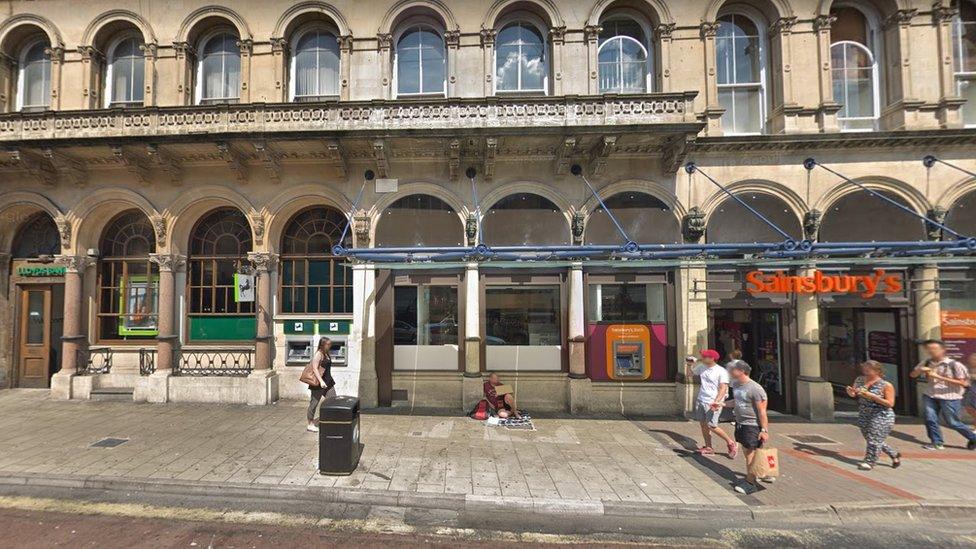Deprived areas 'becoming cash deserts', Bristol study shows
- Published

Clifton has more free cash machines than deprived parts of the city
Deprived communities are losing free cash machines at a higher rate than affluent areas, a study by the University of Bristol has revealed.
Researchers found two-thirds of the city's cash machines that began charging between October 2018 and March 2019 were in poorer neighbourhoods.
Dr Daniel Tischer warned "cash deserts" were being created which further marginalised poor areas.
The team added policymakers had to take the most vulnerable into account.
The study showed bank branches and free cashpoints were concentrated in areas of economic activity, such as the affluent neighbourhood of Clifton.
Cash machines in more deprived areas tended to be owned by companies that increasingly charge people to withdraw money.
'Cash is king'
On Whiteladies Road in Clifton 29% of cash machines were not owned by banks.
This compared to 89% of cashpoints in the more deprived area of Stapleton Road in Easton.
Dr Tischer, lecturer at the University of Bristol's School of Management, said his team regularly met people in Stapleton Road "who found it difficult to access mainstream banking products".
"For these people, cash very much continues to be king," he said.
The research found that a quarter of ATMs in Bristol have no alternative within 250m (820ft) in the event they close or malfunction.
Almost half of fee-charging cashpoints have no free alternative within 250m.
This could have negative impacts for those with mobility issues and risk creating "cash deserts", the researchers warn.
They found Post Offices were less likely to provide banking services in deprived areas.
It is estimated that 2.2 million people report they only use cash, with 1.3 million people without a bank account.
"If the patterns found in Bristol are replicated nationally, it is likely that we'll see a return to old geographies of financial exclusion, with deprived communities struggling most as cash becomes less common," Dr Tischer added.